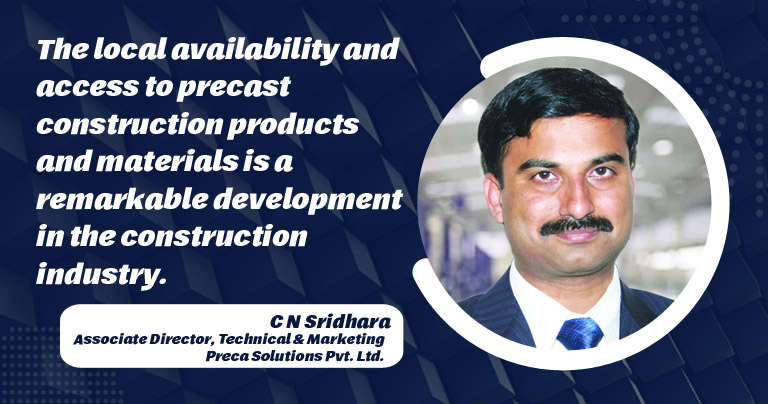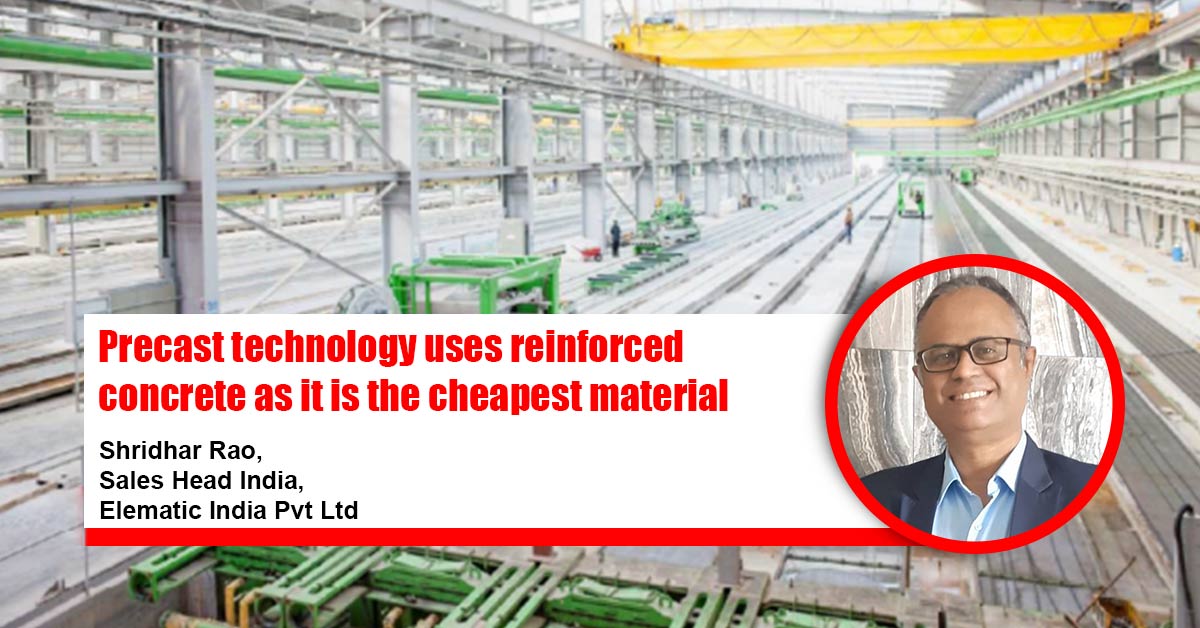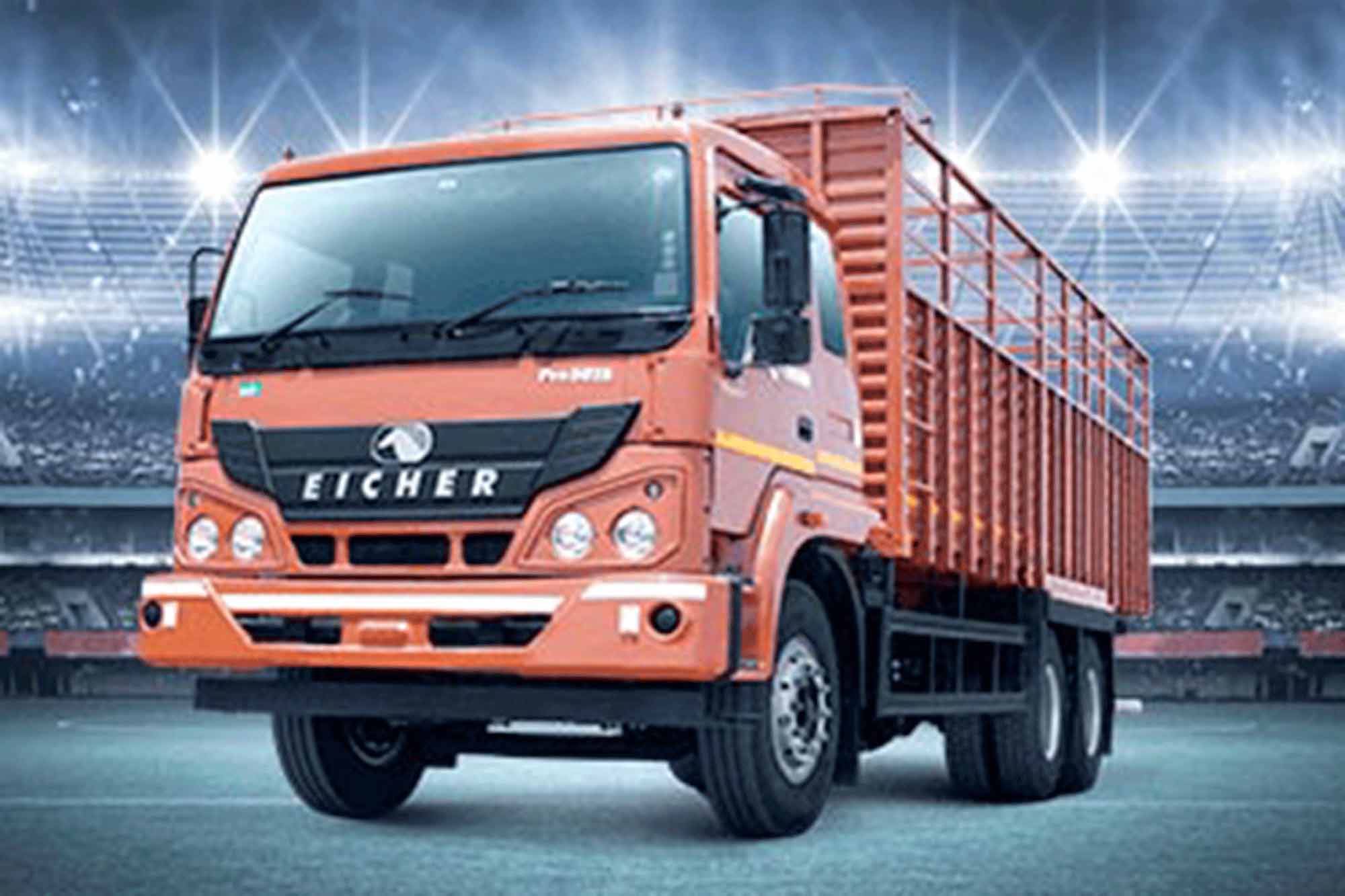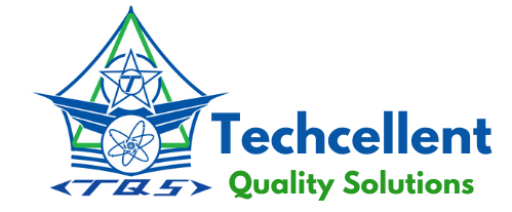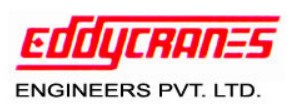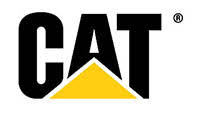Ultra-thin concrete roads to replace asphalt and tar roads
By Edit Team | October 31, 2022 7:08 pm SHARE
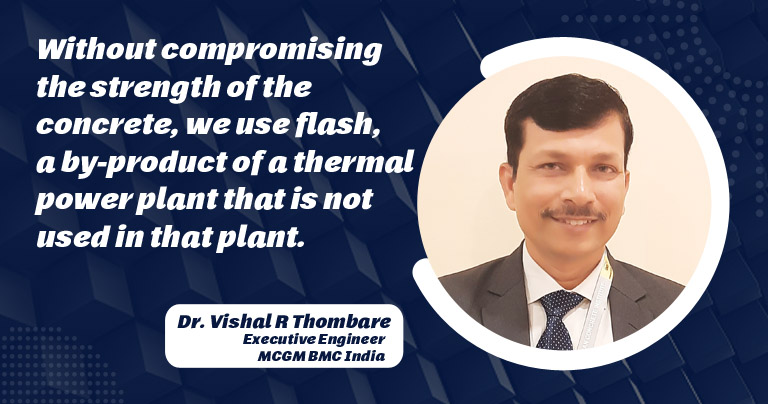
Dr. Vishal R. Thombare, Executive Engineer BMC India, tells B2B Purchase that BMC does not make concrete on site; instead, concrete is brought on site from approved RMC.
What is BMC’sapproach to the latest trends in road construction technology?
We have recently invited a ₹5,800 Crore tender which consists of concrete roads and UTWT (Ultra-Thin White Topping). For the transparency of the work done at every construction site on the road, we have installed CCTV. It can be monitored while sitting in the office by our chief engineer. Also, on Barricades, we will put up QR codes for citizens to get information about the ongoing project. We have appointed a quality monitoring agency, a third party responsible for day-to-day quality control and quality assurance. This is how we will maintain the quality and standard at every stage of construction.
How are environmental trends influencing road construction projects?
It is well known that Mumbai experiences very high rainfall, ranging from 2500 mm to 3500 mm annually. On some days, we receive 20 to 30 percent of our annual rainfall in less than 24 hours or 48 hours. These are the difficulties with surface runoff. We have built some soak pits and holding tanks in BMC so that a large amount of water can be stored in these tanks without any flooding. Mumbai has not experienced any flooding so far this year. This is a positive thing that BMC Engineers have accomplished. Secondly, we are gradually replacing all the asphalt roads with cement concrete roads and UTWT.
How do you assess the need to shorten the project timeline?
We religiously follow the given timelines and expect the same from the contractor. If the contractor completes the assigned work before the given timeline, they are given some rewards. However, if the given task is delayed, they are penalised for the same. This helps us to complete the projects on time.
What are the difficulties in obtaining raw materials and estimating project costs?
To reduce construction costs, we use readily available local materials. In addition to that, we use fly ash, micro silica, metakaolin, and alccofineas a mineral admixture which isa byproduct of various industries like the thermal power plant, silicon industry etc. We have done extensive R&D to develop these specifications, and we only approve the RMC plant if it meets all of our specifications or checklist. The distance from that specific agency plant to the site is critical because most of our RMC plants are located outside Mumbai, including some in Thane, Navi Mumbai, Turbhe, and other locations. We conduct a thorough analysis and make specific recommendations to RMC firms, such as adding plasticisers and retarders in a particular proportion. RMC plant owners have a competent technical team.As a result, the site engineer is assured to get quality concrete onsite from approved the RMC plant.
How is precast concrete enhancing the construction of bridges, flyovers, and viaducts?
Precast pre-stressed concrete technology undoubtedly benefits us. We don’t make any concrete onsite; instead, it is cast at a controlled temperature with all quality parameters inthe casting yard. In the casting yard, we produce segmental concrete, stormwater drain, RCC duck etc. These precast products are being used in the Mumbai Coastal Road project. By use of these precast concrete productson-site, we save time and money.
What are your thoughts on using recycled materials to build roads, and how do you ensure they are safe and high-quality?
We use flyash, a by-product of a thermal power plant in concretewhich is of no use to that thermal power plant, in concrete without compromisingthe strength of the concrete. Mineral and chemical admixtures are also available for use in road construction. We can replace 20-30 percent of cement by flyash. Also, we can replace 5 to 10 percent of micro silica in cement without affecting the strength of the concrete. In some cases, we can use a combination of flyash and micro silica in concrete. We use waste plastic on bitumen roadsas we all know, it is challenging to dispose of plastic, which ideally is the reason for floods. So, to overcome this challenge, we have developed a solution, and we use waste plastic on asphalt roads without affecting the quality of the asphalt roads.
Can you shed some light on ongoing projects in Mumbai?
Mumbai is developing at the same rate as other nations. Our current trending projects include the following: Two twin tunnels are part of the Mumbai Coastal Project; one leads to South Mumbai, and the other to North Mumbai. This is the country’s first undersea tunnel. The Mumbai Trans Harbour link project, which links Shivdi and Nava Shiva, or Mumbai and Navi Mumbai, Mulund Goregaon link project which will join eastern and western suburbs, beautification of the Mumbai project, Sewage treatment plant project as well as Metro projects. All of these projects demonstrate to us how quickly we are progressing.
Cookie Consent
We use cookies to personalize your experience. By continuing to visit this website you agree to our Terms & Conditions, Privacy Policy and Cookie Policy.


